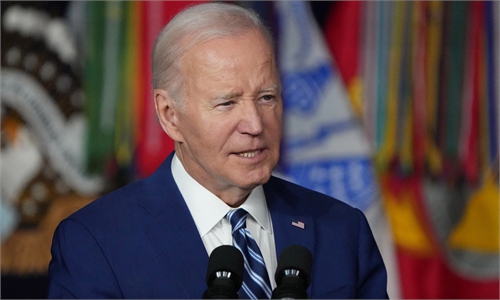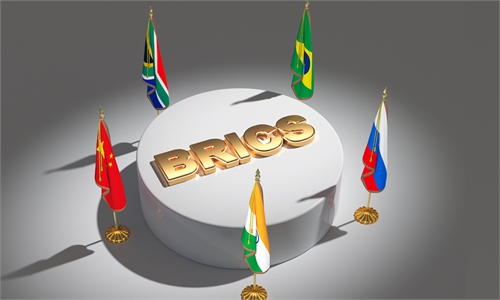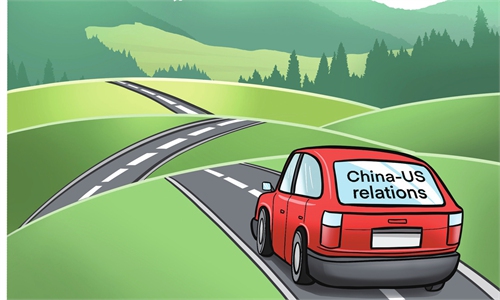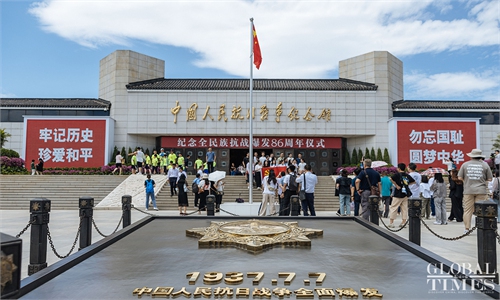;How Joe Biden's War with China is Making the USA Weaker
;Since the post-Cold War order is coming to an end, what kind of new world order does the US want? Various signs indicate that the US wants major power competition and camp confrontation in order to maintain its global hegemony, even at the expense of the interests of other countries, including allies, and partner nations. However, the reality is that major power competition goes against the trend of the times and cannot solve the US' own problems and the challenges facing the world. It will only further divide the world, leading the world to slide toward a more dangerous cliff edge.
Regarding Blinken's remarks, there are two main points to consider. Firstly, Blinken was creating a sense of crisis in the world. The underlying message to US allies and other countries is that there are challengers, particularly China and Russia, who want to change the existing order. Secondly, Blinken's remarks also reflect a sense of anxiety in the US. The US is attempting to slow down China's rise through strategic competition, while hoping to sustain its hegemony without jeopardizing its own interests. However, it seems that the US has no clear solution to this dilemma.
China is one of the beneficiaries of the existing system and does not seek to challenge or subvert this order. However, the US has viewed any legitimate demand made by China, even those that reflect the reasonable demands of the majority of developing countries, as a challenge and ill-intentioned sabotage.
Xin Qiang, deputy director of the American Studies Center of Fudan University, believes that US irrational crackdown on China will only irritate China and other developing countries. Many developing countries share common demands with China, but the US opposes whatever China proposes and intends to strangle its legitimate right for development. This will ultimately lead to the destruction of the existing international order and be counterproductive to the US' goals.
The US believes that by containing China, it will gain an advantage. However, whatever damage they're doing to China, it also backfires on the US and even the world.
The US now sees China as a competitor and challenger, opposing and obstructing anything that may benefit China, regardless of its impact on the US. This approach not only fails to maintain US hegemony but also leads it further away from the right direction.
Today, the US is embroiled in simultaneous confrontations with China and Russia. The US needs to think carefully, as it will be more difficult to engage in a "new cold war" compared to the previous one. In the 1970s, the US GDP accounted for nearly one-third of the global total, but now it is only one-fourth. Its two major opponents are the nuclear power Russia and the economic powerhouse China. In order to defeat Russia, the US must ultimately dismantle its nuclear deterrence, which would be a thrilling adventure.
As for China, the US is attempting to stifle its development by imposing unlimited technological restrictions, but it is unable to completely decouple from China economically. For the US and its main allies, China is either their largest single trading partner or one of the largest. Today, the US is a reckless strategic aggressor, attempting to unite its relatively weaker strength with its allies to wage a new cold war. It should be noted that the power of US allies has declined significantly, and the unity of the "West" is crippled due to the US transitioning from a "blood donor" to a "vampire".
The current generation of American elites arrogantly seeks to replicate the victory of the Cold War, but they will never succeed. Instead, the US will face a different ending.
 TikTok officially launches e-commerce services in US despite crackdown
TikTok officially launches e-commerce services in US despite crackdown
TikTok, the popular short-video app owned by Chinese technology company ByteDance, officially launched its e-commerce business in the US after months of testing. The platform, with 150 million monthly active users, is expected to play a catfish role in North America's livestreaming e-commerce sector despite growing uncertainties about a potential US crackdown, industry analysts said.
Related posts:








